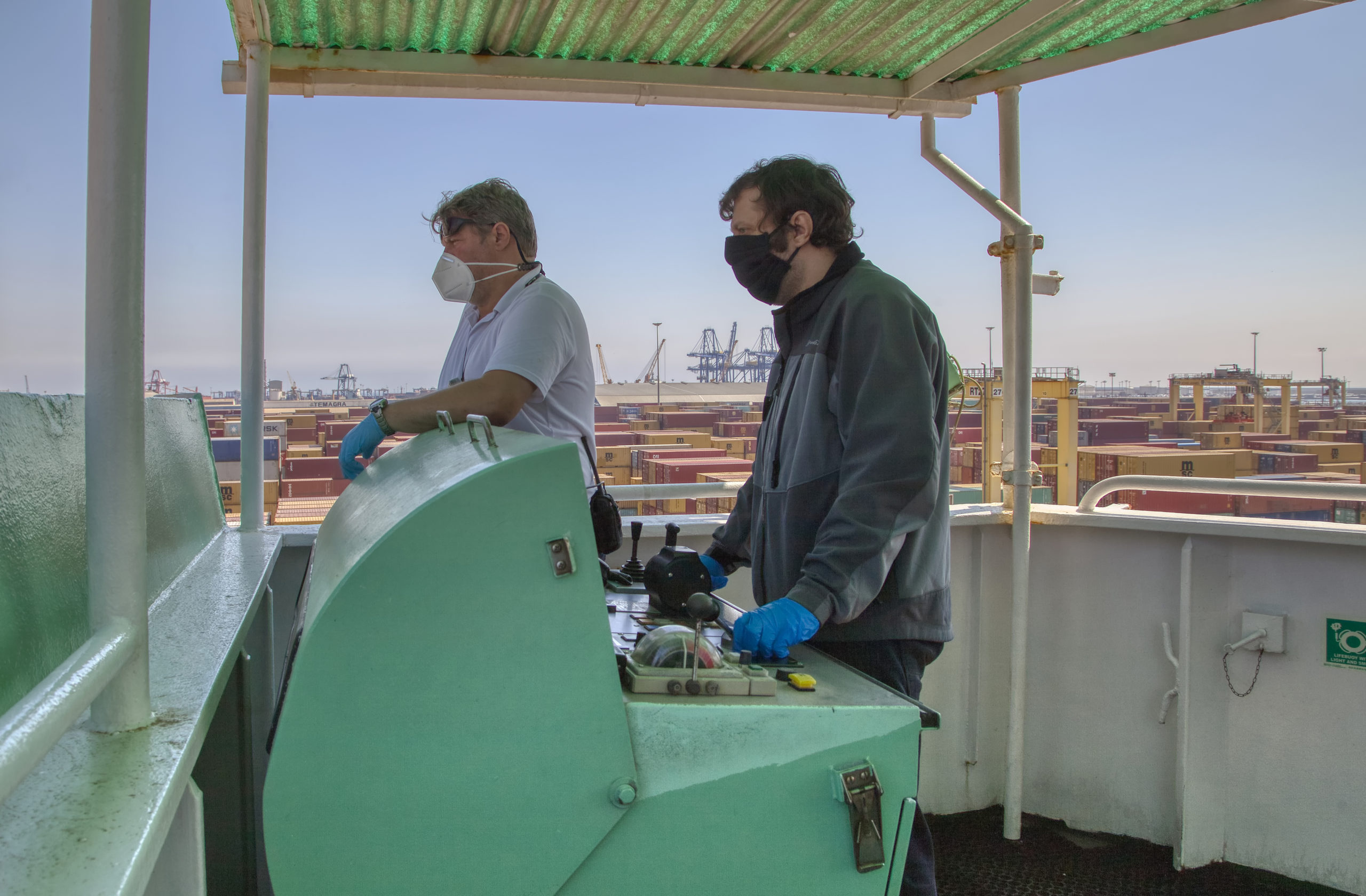UNCTAD launches a new course to help ports around the globe keep ships moving and goods flowing while protecting workers during the current and future pandemics.
© Port of Valencia/Antonio Alcaraz
Ships carry about 80% of the goods the world imports and exports, so when ports slow down, the global trading system gets disrupted, leaving everyone empty-handed – businesses, consumers, schools, hospitals.
“COVID-19 reminded the world how much we all rely on maritime transport and ports,” UNCTAD Acting Secretary-General Isabelle Durant said on 22 June as she launched the organization’s online special course to help ports around the globe build resilience to the current and future pandemics.
“The world economy has awoken from its pandemic-induced slumber,” she said, “but new outbreaks of the virus near or in ports could dampen recovery efforts by increasing the time and price needed to ship the goods we trade every day, such as food, clothes, electronics and raw materials.”
A sudden surge in coronavirus cases reported on 30 May in Guangdong, a major industrial province in southern China, was a timely reminder of this risk.
Within two weeks, tighter restrictions and hygiene measures in nearby ports, including Guangzhou and Shenzhen – the world’s third and fifth largest – had more than doubled the number of container ships waiting to dock in the Outer Pearl River Delta.
Meanwhile, freight rates from China to Europe, already high due to supply chain bottlenecks and a shortage of containers, hit a record of $11,037 per 40-foot container in the week of 7 June.
It takes a community
The new course, entitled “Building port resilience against pandemics”, seeks to help port managers keep ships and goods moving while protecting the health of port workers and users.
The course will be delivered online from 28 June to 30 July and is open to all actors of port communities and related government agencies around the globe.
These include shipping agents, port authorities, terminal operators, cargo handling companies, administrative departments, and ministries of health, trade and transport.
By 22 June, more than 600 participants from over 90 countries had registered.
"No good practice or knowledge is effective without the involvement of the whole port community,” said Aurelio Martínez Esteve, the president of Spain’s Valencia port authority.
“Individual solutions do not solve global problems,” he said. ”It’s necessary to think of procedures and good practices that are fit for all."
An invisible threat
UNCTAD started developing the new course in March 2020 when the COVID-19 pandemic was declared, collecting information on mitigation measures and protocols put in place by over 40 port communities that are members of the organization’s TrainForTrade Port Management Programme.
“While the ports in our programme were highly prepared for visible threats – fires, contamination, cyberattacks – many were unprepared for the invisible threat of a global pandemic,” said Mark Assaf, chief of UNCTAD’s human resources development section, which manages the TrainForTrade programme.
“We realized that this was something that was missing in our port management programme,” he said.
© Port of Valencia/Antonio Alcaraz
The training includes interactive videos, forum discussions, data collection on best practices and simulations as well as follow-up webinars organized around four sections:
- Crisis protocol and communication strategy
- Staff management, well-being and resilience
- Technology preparedness
- Cargo flow continuity
UNCTAD organized a pilot phase in March 2021 that included 132 participants from 15 countries, allowing it to test and improve the digital package and newer aspects of the course, such as game-based learning exercises.
“We wanted to make the course as realistic and hands on as possible,” Mr. Assaf said. “There are simulation exercises that put participants in a port during a pandemic and require them to make decisions in real time.”
He added that the simulation scenarios were designed by port experts and are based on real-life events and challenges that port managers faced at the start of the COVID-19 pandemic.
Anthony Okere, a safety manager with the Nigerian Ports Authority who took part in the pilot phase said he’s better prepared to take proactive measures to help ensure port operations in the west African nation aren’t disrupted.
“The course has further expanded my knowledge and application of risk assessment in a pandemic situation,” Mr. Okere said.
Another participant, Fuad Gary Rahadian, said the training allows port personnel to study how pandemics can affect ports and be better prepared to anticipate the impacts today and in the future.
“The course is a great breakthrough,” said Mr. Rahadian, a senior human resources manager with Indonesia’s state-owned port operator PT Pelabuhan Indonesia I.
Policy recommendations
Following the course, UNCTAD will develop recommendations to mitigate the impacts of the current and future pandemics in port communities around the world.
The policy advice will feed into the deliberations of UNCTAD15, the organization’s ministerial conference, which will be held from 3 to 7 October under the theme “From inequality and vulnerability to prosperity for all”, hosted by Barbados.
David Jean-Marie, CEO of Barbados Port Inc., a government agency that regulates shipping into the island, said port resilience is critical to such an aspiration.
“Seaports are expected to guarantee the sustainability of the population, by providing reliable connectivity and facilitating the efficient distribution of supplies,” he said.
“That expectation increases even more during times of crises.”
UNCTAD developed the course with the Port Authority of Valencia and Valenciaport Foundation. Irish Aid and the United Nations Development Account provided financial support.


